Let me start by explaining the term ‘plogging’.— It is a combination of two words plog and jogging.
Plog comes from the Swedish word plocka upp, meaning ‘pick up.’
So when we do a Plog run, we are supposed to pick up trash as we walk or run on a desired path. What started as a fun activity in Sweden in 2016, has quickly caught the fancy of millions worldwide.
The Plog run can be done anywhere while going for a run (or walk) on a city road, beach, park, or even while going for a mountain hike.
The things that you need to carry along as you embark on your Plog run are – a small bag to collect trash and a passion to create an environmental impact.
With the increased usage of plastic and our inability to deal with the growing hazards caused by it, plastic pollution has become one of the most pressing problems to manage. The situation is even worse for developing and underdeveloped parts of the world, where garbage collection is mostly inefficient.
The trash ends up in landfills or gets mixed up with soil, from where it travels to oceans through rivers. Hundreds of animals die every day due to plastic waste lying in our environment. Traces of plastics have been found in human bodies through the consumption of marine animals.
If there is one solution to tackle the problem of plastic pollution, it has to be through increased awareness. Making people know about the problem firsthand will send out a clear message of the gravity of the situation and the need to solve it.
Plog Run can be one such initiative that helps to create awareness around plastic pollution. In addition, the concept promotes a social cause that is fun to do and is interspersed with exercise and fitness – all-important aspects of a healthy life.
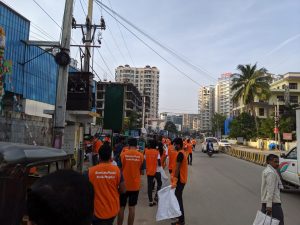
On 2nd October, the birth anniversary of Mahatma Gandhi, I got an opportunity to participate in one of the Plog runs, organized by India Plog Run.
The event was simultaneously conducted in about 50 cities and courtesy to the sponsors the event was free for the participants.
With active engagement from the government, endorsement from celebrities, and the buzz around the Swacch Bharat campaign (Clean India), the event generated reasonable participation.
Our group had about 60 participants and was duly provided with some necessary embellishments to carry out our ensuing duties like hand gloves, a brightly colored orange jacket, a face mask, and most importantly a garbage bag.
After a round of instructions, some dramatics, selfies, and groupies, the volunteers helped us with some stretching exercises as preparation before we embarked on this cleanliness adventure.
The task was straightforward: pick any plastic waste lying on the streets through a 3-kilometer stretch.
Most of my group members focused on plastic packets of chips and cookies lying on the side lanes. On my part, I concentrated on the small plastic items that are typically mixed with mud and are missed out by the sanitation workers, like pieces of straw, disposable plastic cutlery, pan-masala & gutkha wrappers, chewing gum packets, and corners of chips and milk packets, among others.
As I went through my plogging exercise with all dedication, many questions came running into my mind – Why do we have to partake in this activity in the first place? Why don’t citizens take care of discarding waste responsibly? What stops us from allowing this waste to get mixed into our ecosystem which leads to so many problems?
These questions had no clear answers, but the activity gave me moments of joy and satisfaction.
On one occasion, a couple of 10-year-old boys joined and helped us pick up some trash. When we informed them that only small plastic items needed to be collected, for the next 10 minutes they picked up all they could in their small hands with a sense of amusement and pride, even curiously saying “Bhiaya ye lo and ye wala (Brother take this one and is this applicable?)”.
What an amazing feeling, not only did the children voluntarily contribute to this cause, but they will probably remember (at least for some time) that plastic is bad.
In another instance, one Uber driver waiting for his passenger, seeing this big group in brightly colored jackets with branded shoes picking trash from the road, enquired about this activity. Once he understood the concept, he gave his full appreciation and acknowledged that this would help create awareness around plastic pollution.
According to government figures, India generates around 25,940 tonnes of plastic waste every day. In about 2 hours and with 63 people in the group, we collected about 200 kilos of plastic waste.
This effort might be a minuscule contribution to the humongous problem we have, but we did help in removing a few plastic pieces that likely would have ended up in our oceans or food chains. In addition, we might have evoked some awareness of plastic pollution in the minds of curious onlookers.
Walking on the roads any other day and seeing traces of trash on the sides is just an occasion to curse society, but doing this Plog run not only gave me a sense of contentment but also led me to ponder over the evil that we need to fight together for a safe tomorrow.
In conclusion, doing this Plog run was a mixed bag of emotions – doing it in a group had moments of jokes and laughter, but going through this grind was equally deplorable and satisfactory.
Creating awareness around the issue of plastic pollution is one of the reasons for building Change Started, plogging on Gandhi’s birthday made my resolve even stronger.
Contributed by Varun, founder of Change Started

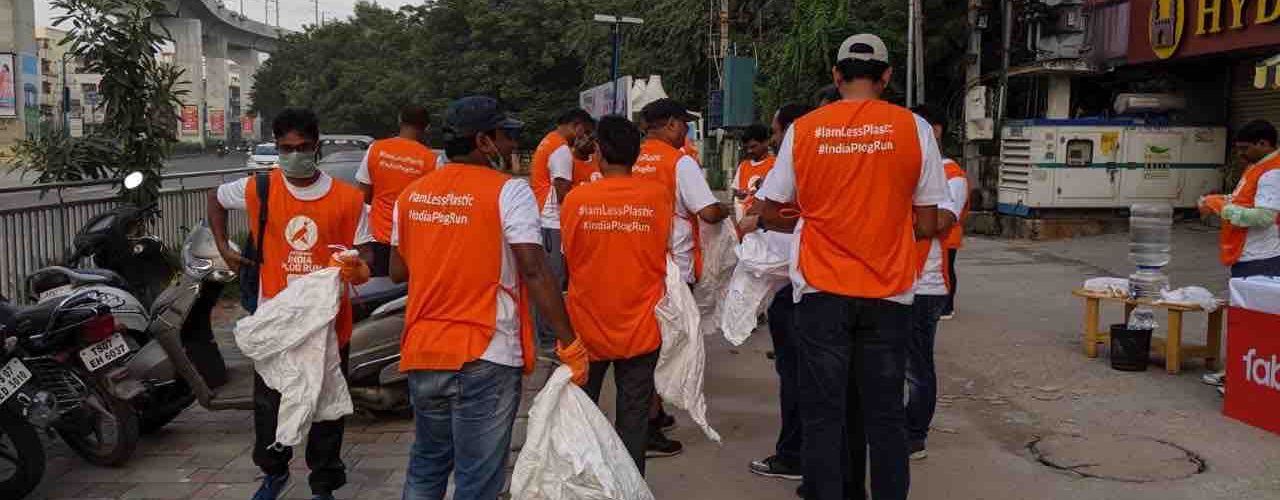
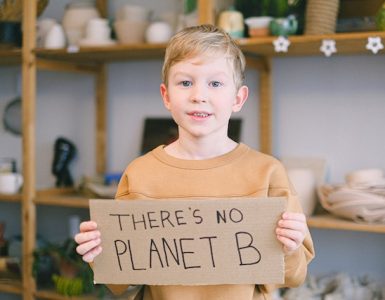
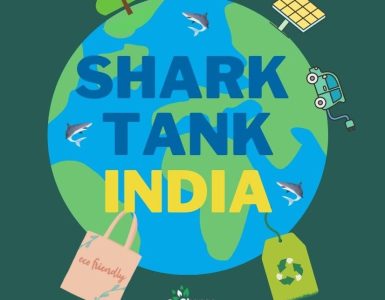
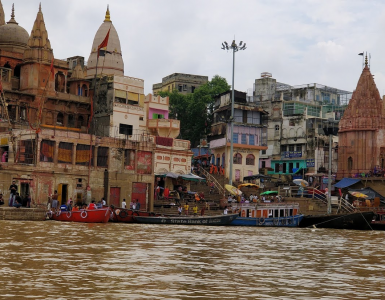

Add comment